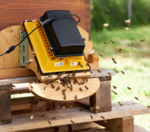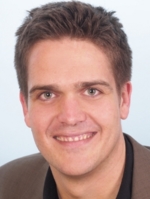-
-
Press release - 29/09/2023
The European Parliament’s amendments to the proposal for a Regulation on Artificial Intelligence (AI) may be defined as a socio-ecological turnaround compared to the European Commission’s existing draft. The parliamentary draft proposes a series of environmental and climate-related provisions which, in the Oeko-Institut’s view, are feasible and technically achievable. The Oeko-Institut has reviewed these proposals in a Policy Paper.
https://www.biooekonomie-bw.de/en/articles/pm/ecological-alignment-artificial-intelligence
-
-
-
-
Biosensors - 03/12/2019

Biosensors are used in medical diagnostics and food and environmental analyses, to name just a few examples. apic.ai, a start-up based in Karlsruhe, uses honey bees as bioindicators to gain insights into the state of the ecosystem. The company also uses artificial intelligence (AI) methods for their ecotoxicological investigations.
https://www.biooekonomie-bw.de/en/articles/news/learning-from-the-bees
-
Article - 30/01/2019

Industry has been using enzymes for over a hundred years. While it initially had to content itself with natural enzymes, it is now increasingly possible to design tailor-made biocatalysts with specific properties. The start-up company candidum GmbH from Stuttgart promises to achieve this faster than ever before - mostly thanks to accelerated virtual screening.
https://www.biooekonomie-bw.de/en/articles/news/candidum-computer-assisted-enzyme-design
Website address: https://www.biooekonomie-bw.de/en/search

